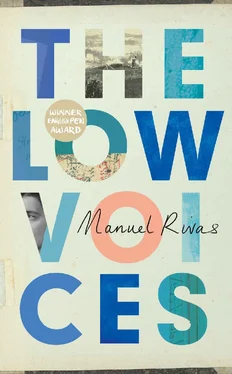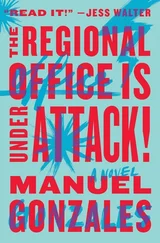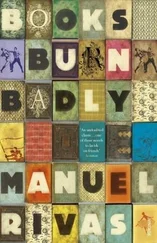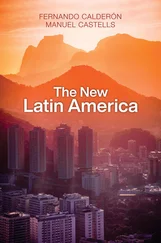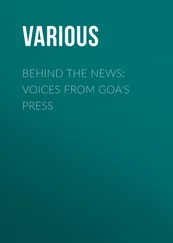Manuel Rivas - The Low Voices
Здесь есть возможность читать онлайн «Manuel Rivas - The Low Voices» весь текст электронной книги совершенно бесплатно (целиком полную версию без сокращений). В некоторых случаях можно слушать аудио, скачать через торрент в формате fb2 и присутствует краткое содержание. Год выпуска: 2016, Издательство: Harvill Secker, Жанр: Современная проза, на английском языке. Описание произведения, (предисловие) а так же отзывы посетителей доступны на портале библиотеки ЛибКат.
- Название:The Low Voices
- Автор:
- Издательство:Harvill Secker
- Жанр:
- Год:2016
- ISBN:нет данных
- Рейтинг книги:5 / 5. Голосов: 1
-
Избранное:Добавить в избранное
- Отзывы:
-
Ваша оценка:
- 100
- 1
- 2
- 3
- 4
- 5
The Low Voices: краткое содержание, описание и аннотация
Предлагаем к чтению аннотацию, описание, краткое содержание или предисловие (зависит от того, что написал сам автор книги «The Low Voices»). Если вы не нашли необходимую информацию о книге — напишите в комментариях, мы постараемся отыскать её.
A brilliant coming-of-age novel from one of Spain’s greatest storytellers,
is a humorous and philosophical take on memory, belonging, and the nature of storytelling itself.
The Low Voices — читать онлайн бесплатно полную книгу (весь текст) целиком
Ниже представлен текст книги, разбитый по страницам. Система сохранения места последней прочитанной страницы, позволяет с удобством читать онлайн бесплатно книгу «The Low Voices», без необходимости каждый раз заново искать на чём Вы остановились. Поставьте закладку, и сможете в любой момент перейти на страницу, на которой закончили чтение.
Интервал:
Закладка:
But that hasn’t happened yet. I am climbing the stairs to the Ideal . Not the main ones, but the ones at the back that led straight to the editorial office. There was no control post or private security. In those years of upheaval, editorial offices were marketplaces. The door opened, and in would come a neighbourhood committee, a trade union representative, a group of women shellfish gatherers wanting to know whether there were any men with the balls to publish their complaints. There were people with news on top of their heads. Live news, news in kind. Now I’m the one climbing the stairs. Nobody sees me. To gain confidence, I climb two steps and go down one, climb two, go down one. I have the staircase syndrome even before I’ve gone up it. Why did I leave my poems in the office? They’re not good, and they’re sad as well. I should go back for my poems. Please excuse me, I made a mistake. I have other texts, journalistic texts. I have also carried out a few interviews for the school magazine. What’s that about the poems? Please let me explain. My godfather has a typewriter. It’s a portable typewriter, very small. He’s a travelling salesman, a seller of spices. By the way, did you know that a kilo of saffron is worth more than a kilo of gold? He uses the machine to write his invoices, so the carriage is very short. He wants me to be a cultured man, to be useful. He told me years ago, ‘Write if you want, write using the typewriter.’ So I started to write, of course I did, like someone playing with letters. What do I write? The carriage is short. I think. Let me write some verses. Lines that look like verses. Poetry. This is how my poetic vocation began. It was determined by the size of the carriage. A game. Children’s stuff. You’d better give me back the poems. It might lead to prejudice, confusion and so on. I don’t want to publish poems. I want a job where I don’t get wet.
I have some sad poems and my notebook from the co-ed institute. The one who opens the door and does not close it, but welcomes me in, glancing inquisitively at the sheaf of poems, is a young woman by the name of Ánxela Souto, the director’s secretary. I don’t know about magic, but magical causality certainly exists. My first poems find a home in her hands. I feel like Charlie Chaplin after a groundswell. In the best place possible. I come back a week later. Just a moment, please. The director will see you. The director? Yes, that’s him, the director. ‘Somebody read your poems,’ he informs me. ‘Said they weren’t bad.’ This could make for a good title: ‘Poems That Are Not Bad’. The most generous review I’ve ever received. But nothing can beat what he says after that: ‘Stick around for a couple of days! Let’s see what you can do!’
I left school and, without telling anybody, went running to my first job. I climbed the stairs two by two, opened the door to the editorial office. In the circles of keys, the ‘happy girls’ were dancing, propelling iron machines. There was the factory of words. The large office where rumours took shape. The rhythm of traction, the writing’s advance on the carriage, produced columns of smoke. There were slow ones, thick and dark, that didn’t quite take off, forming a cloud of nostalgia around their author. Others that rose with artistic calm, forming arabesques before throwing themselves at the blades of the fans. And then fleet-footed ones, the swift, direct smoke of furious writing.
Almost all the journalists smoked. The typewriters had small metal ashtrays soldered on to the side. It was fine to know how to type, but if you wanted to be a real journalist, the first thing you had to do was buy some tobacco. In among the clouds, along the central aisle, Ánxela led me to a desk. She sat me down in front of a man with oversleeves of the kind worn by old journalists. He was a frail, silent man, so I wasn’t surprised when he handed me a typewritten sheet and said with a conjuror’s solemn irony, ‘Make it intelligible and give it a headline of fewer than ten words.’ On looking closely at the sheet, a correspondent’s chronicle, I realised it was a copy of the carbon copy. It was hard to make out the words, which carbon shadows only hinted at. A couple of days. Something to do. More than I could dream of. There’s no pay. I’m an apprentice. It’s the first time I’ve heard this word. It sounds ancient. I hear people saying, ‘Get the apprentice to do it.’ The apprentice, I wonder to myself. Who can that be? Until I realise the arrow is aimed at me. I am the apprentice. I still don’t know whether it sounds good or bad.
The veteran’s name was Javier Guimaraens. A legend on the old Ideal , responsible for local information about towns and municipalities. Very austere in everything, including in the way he expressed himself. His extreme thinness may have had something to do with the obsessive practice of pruning texts. He was a very conservative man. Even to identify himself, he didn’t need long sentences. On that first day, he looked at me over his glasses, like an entomologist sizing up an unknown specimen on the other side of the desk. We never collided after that. He was highly respectful and taught me a lot about verbal paucity. I followed my instinct, focusing on headlines of fewer than ten words and on my job as a palaeologist poring over municipal texts.
One of the apprentice’s first missions was to be the bearer of news. I mean this literally. A lot of chronicles from local correspondents arrived by coach. There was no bus station, so you had to go to the different stops and the drivers would hand you an envelope. Chronicles by phone, reversing the charges, were only acceptable in extreme cases, such as a serious accident.
I handed the municipal envelopes to Guimaraens and sat down to wait for new challenges in the world of journalistic conjuring. There were texts that were written by hand, in scrawly, complicated handwriting. Others that possessed an admirable desire for style, laborious, calligraphic poems whose spirit flagged in order to inform us of the coming visit of the Provincial Delegate for Choirs and Dances of Education and Rest of the National Movement’s Women’s Section. In these cases, it was necessary to type them out. Those that were already typed had to be revised, corrected and sometimes abridged so they would fit the space available. Needless to say, they had to be given a headline of fewer than ten words. Some chroniclers made their feelings known. For them, aside from bold type, a successful headline was a long one that told the whole story. I turned into a fan of Guimaraens’s minimalism and gobbled up more and more words.
One day, my immediate, minimalist boss handed me a sheet. He didn’t even look at me or open his mouth. By the format and other marks, I quickly identified its source. It was a chronicle from Boiro by a correspondent who signed himself ‘Enmuce’. Enmuce was highly reliable. And very hard-working. He used to send in a chronicle almost every day. The problem was that he sent the same chronicle to every newspaper. Most correspondents were not paid. Their only compensation was being published. In contemporary language, we might say it formed a ‘virtual payment’. Enmuce used carbon paper to make copies. But there were lots of copies. Up to seven. Things got really complicated when you received one of the last copies. But this had never happened before. Not until today. Not being able to understand a single word. It was the end of summer. My reputation really was on the line now. Including the job in which I didn’t get wet.
I had to use the opposite technique to minimalism. What it says, more or less, in the Icelandic Edda : ‘The first word will lead to the second, and the second to the third.’ The chronicle was in Spanish, and the first word identified itself, even gestured to be seen: ‘ patata ’. Little by little, using the carbon signs that were visible and the traces of the keys, I managed to decipher the unknown territory. To weave the words together. Certain words led to others. I felt that the words that had disappeared wanted to return to life. They were peering out from behind the keys. I reassembled this chronicle that spoke of the discovery of a gigantic potato on the very day a UFO had been spotted in the area. Unidentified Flying Objects were very fashionable back then. There’d even been a government directive ordering the restriction of news about UFOs, since they might unsettle the local population and question the heavenly order. But the news about a UFO and a gigantic tuber, now that was hot stuff.
Читать дальшеИнтервал:
Закладка:
Похожие книги на «The Low Voices»
Представляем Вашему вниманию похожие книги на «The Low Voices» списком для выбора. Мы отобрали схожую по названию и смыслу литературу в надежде предоставить читателям больше вариантов отыскать новые, интересные, ещё непрочитанные произведения.
Обсуждение, отзывы о книге «The Low Voices» и просто собственные мнения читателей. Оставьте ваши комментарии, напишите, что Вы думаете о произведении, его смысле или главных героях. Укажите что конкретно понравилось, а что нет, и почему Вы так считаете.
